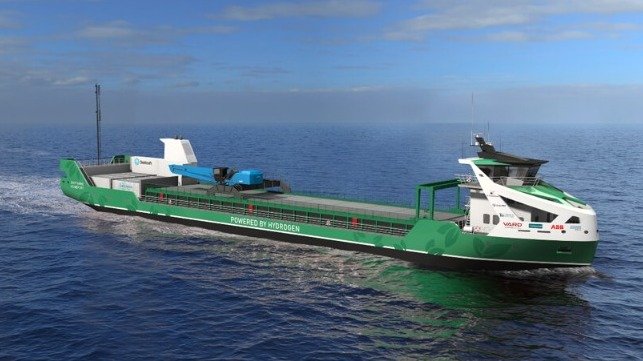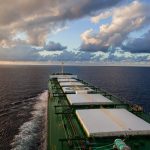If Norway is to achieve its target to reduce emissions by 50 percent by 2030, the country like much of the global shipping industry needs to develop not only new ships but the hydrogen infrastructure to support the transition. To that end, the Norwegian government is funding projects seeking to research and propose a cost-competitive hydrogen value chain that can support and accelerate the transition to zero-emission shipping solutions.
The Norwegian Parliament in June 2021 confirmed the country’s position as an energy nation supporting investments in new industries such as hydrogen and offshore wind along with strengthening the electricity grid and a future-oriented oil and gas industry with low emissions. While that is the vision, much of the Norwegian shipping fleet is aging. Currently, it is estimated that the average age is more than 30 years within the country’s commercial fleet. To meet the goals for 2030, 700 low emission and approximately 400 zero-emission ships will be required, including 450 bulk carriers and cargo ships.
With the support of the Research Council of Norway, Vard along with a range of companies including DNV and ABB have been researching future solutions for shortsea shipping. According to the partners, the research has resulted in a new understanding of how the energy mix and requirements for zero-emissions affect ship design and future transportation solutions.
The ZeroCoaster project is developing a modularized concept that they plan to complete this year. The design features a scalable hull and power system that is ready for battery, hydrogen, ammonia, methanol, and LNG to power fully electric propulsion. The vessel will have a load capacity within 4,000 to 5,000 dwt taking mostly bulk and volume loads. The current concept design is for a vessel that would be approximately 325 feet long. Operating at speeds of 8 to 12 knots, the vessel would have a range of 600 to 2,000 nautical miles suited for the Nordic region and Europe.
In the next phase of the project, two new partners, Statkraft and Hexagon Purus, are joining for Zero Emission Compressed Hydrogen (ZECH). These efforts will evaluate the availability of bunkering technologies to support the introduction of compressed hydrogen. This study aims to research, evaluate and present zero-emission ship design solutions using alternative fuel systems.
According to the partners, to develop a competitive solution, the solutions must reduce costs at each stage of the value chain. Therefore, it is imperative to include the stakeholder of production, storage, and distribution of hydrogen in the transport solution. ZECH will seek to develop economic and technical key performance indicators for the use of compressed hydrogen on ships. Optimization will be achieved through simulation-driven-ship-design and they will also seek harmonization of regulations between land-based industry and the maritime industry related to safety, operation, and future integration.
The project is scheduled for completion by end of 2021. Overall project participants also include Trosvik Maritime, SINTEF Ocean, HK Shipping, and Flowchange.
Source: The Maritime Executive






